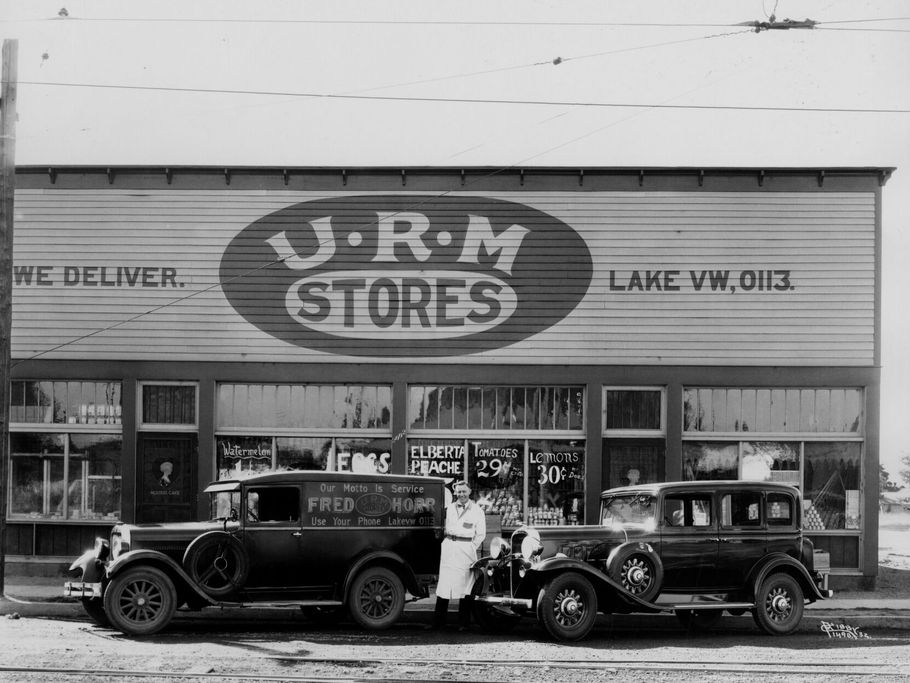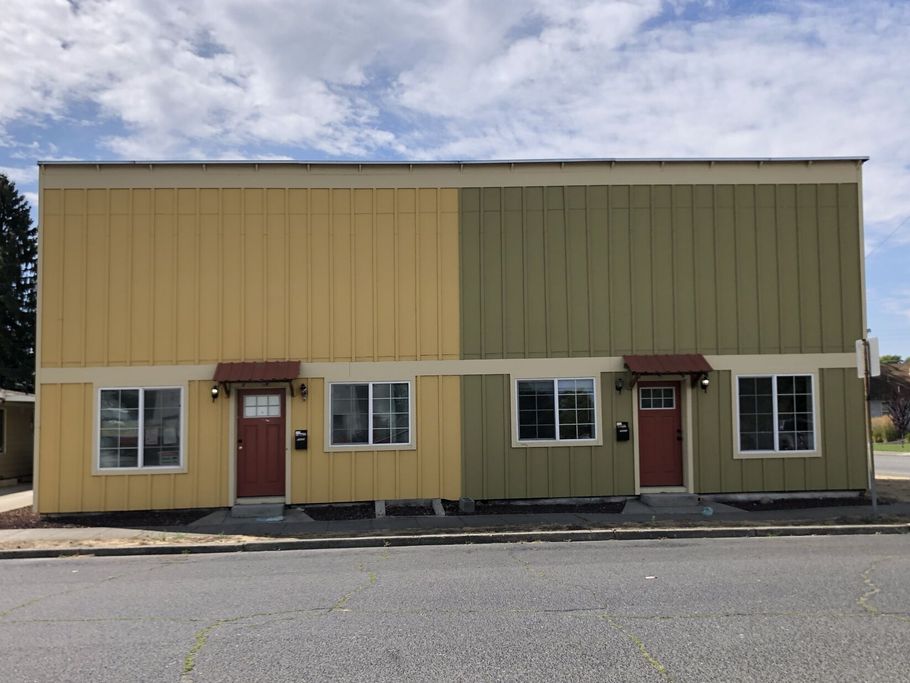
Then and Now: URM Stores
Five stores formed United Retail Merchants in 1921 to pool their buying resources. The co-op, owned by its members, was designed to take the workload of sourcing and ordering off the shoulders of the local store manager and give smaller stores the purchasing clout to compete with growing chains, such as George Christensen’s Piggly Wiggly chain and Charles Marr’s MacMarr stores.
Section:Then & Now


Then and Now: URM Stores
Throughout the 20th century, wholesale businesses devised ways to order products, store and distribute those goods to retailers efficiently enough to satisfy price-conscious shoppers and keep the stores profitable.
Business pioneers, like the Skaggs family of Safeway and Payless Drug Stores fame, understood that a streamlined, dependable supply chain was critical to success and could be used to supply a chain of stores or restaurants if scaled up in size.
But a group of independent Spokane-area store owners worked on this problem from another angle. Five stores formed United Retail Merchants in 1921 to pool their buying resources. The co-op, owned by its members, was designed to take the workload of sourcing and ordering off the shoulders of the local store manager and give smaller stores the purchasing clout to compete with growing chains, such as George Christensen’s Piggly Wiggly chain and Charles Marr’s MacMarr stores.
Through the 20th century, many independents and small chains were absorbed into large national chains or forced out of business, but wholesalers like United Retail Merchants, now called URM Stores, have kept supplying locally owned groceries and convenience stores.
In 1968, URM became a distributor for Western Family products, giving independent grocers access to a large line of private-label products. Western Family Foods dates back to the 1930s in Oregon and has supplied many independent grocers across the country. Other brands have included Shurfine, Shursaving, MarketChoice and Better Buy.
In 2016, Western Family was acquired by Topco Associates, a prominent Midwest grocery supplier, replacing many products with the Food Club label, which dates back to the 1940s and is distributed nationwide, plus Puerto Rico, the Dominican Republic and Mexico.
In addition to supplying grocery products, URM Stores added a finance company to help its members, a land holding company, an insurance company and, according to its website, is the seventh-largest private employer in Washington. URM bought the Rosauers Supermarkets group from the founders, Mert and Jessie Rosauer, in 1984. The stores were sold to its employees in 1990. URM bought the entire chain back again in 2000. The company also operates six Cash and Carry retail stores that are open to the public.
The company moved its facility to 7511 N. Freya St. in 1960 and today, after more than a century in business, has more than 680,000 square feet of warehouse space, supplying a fleet of 60 trucks.
Editor's note: A keen eyed reader in the neighborhood pointed out that the photo caption in the print version of the story said the building becamea residential duplex around 1970, but the building at 2002 E. Boone Avenue was still used as a store until at least 1980. The location was an independent grocery store under the name of Barrick Food in the 1940s and later, Boone-Napa IGA. In the early 1960s, the location was bought by a butcher and it became a meat market under a variety of names, including Discount Meats and Reed's Discount Meats. In 1980, owner John Kenney made it into the All American Meat Market, which specialized in horse meat. It is not known how long that business lasted. The address appears in a classified ad for a rental apartment in 2002. - Jesse